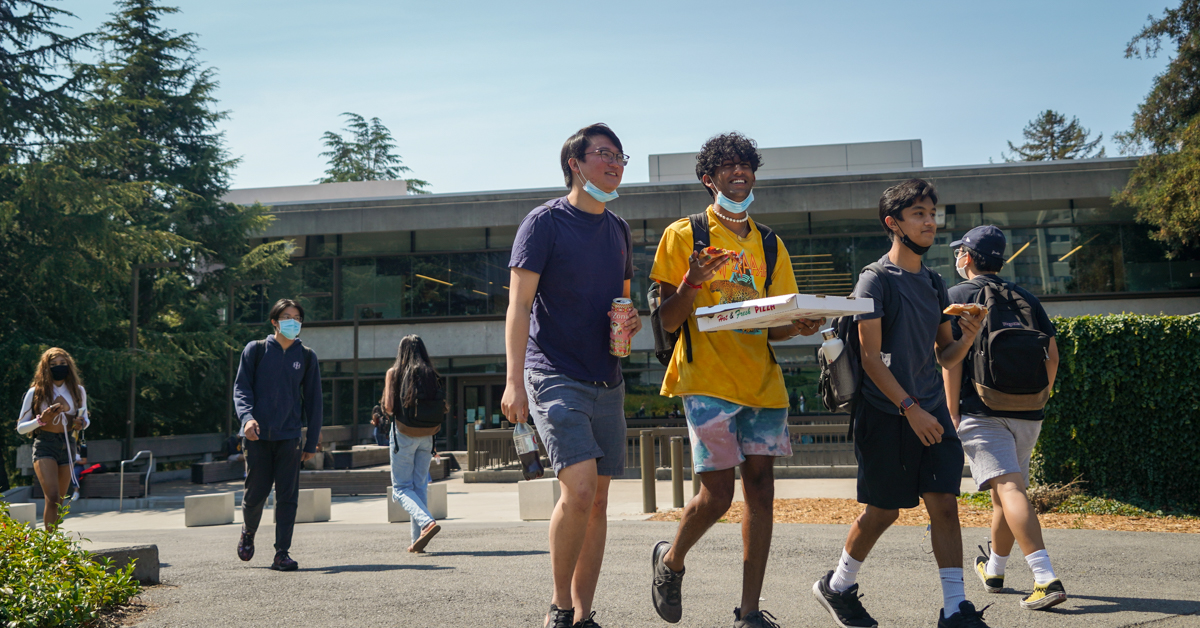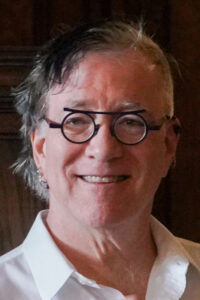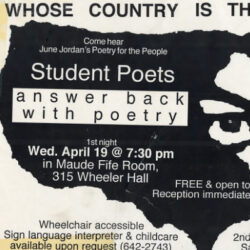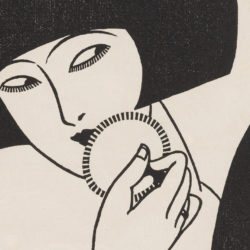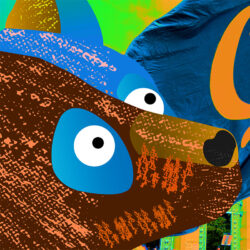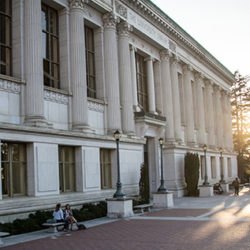Hungry for knowledge? If the answer is yes, then you’ve come to the right place.
This year, the UC Berkeley Library dished up a diversity of offerings, holding workshops, answering questions, and providing researchers with the books, journals, databases, and primary sources they needed. We built upon our cornucopia of collections. We brought people together. We digitized more treasures, so they are available online for anyone to devour. We helped make a larger portion of the University of California’s research free for everyone. And we imagined new ways to serve our timeless mission.
Despite some belt-tightening, this year was a veritable feast. Read on to get a taste of what the Library had on its plate. Bon appétit!
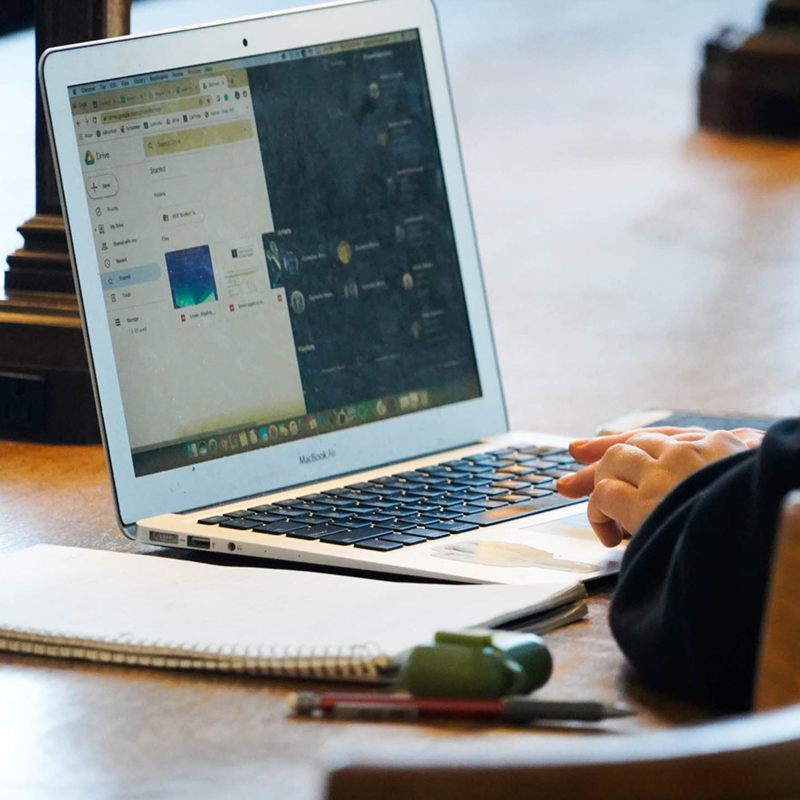
Data science for all
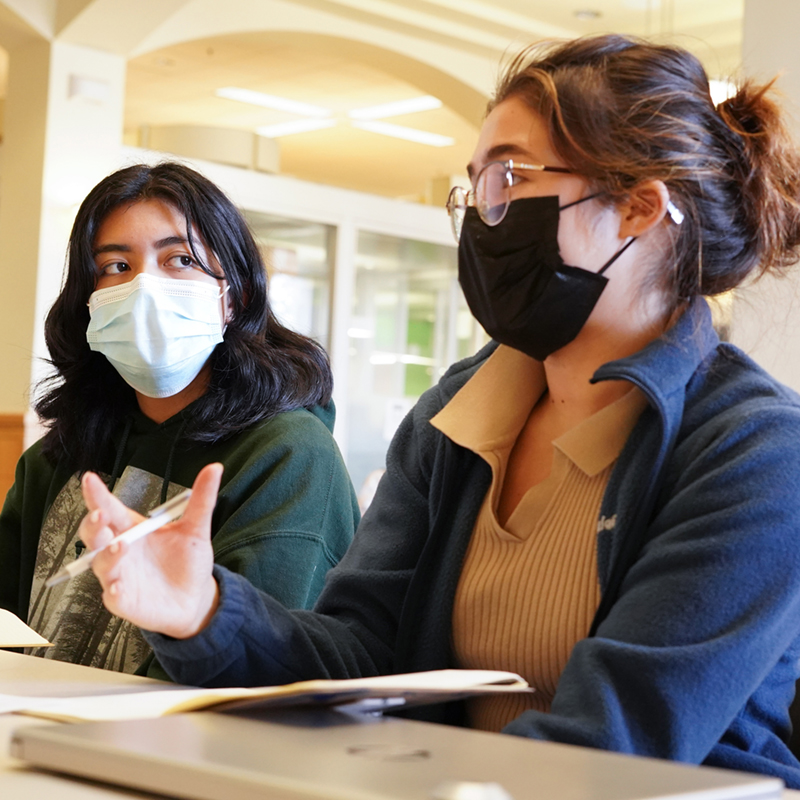
Help! I need somebody
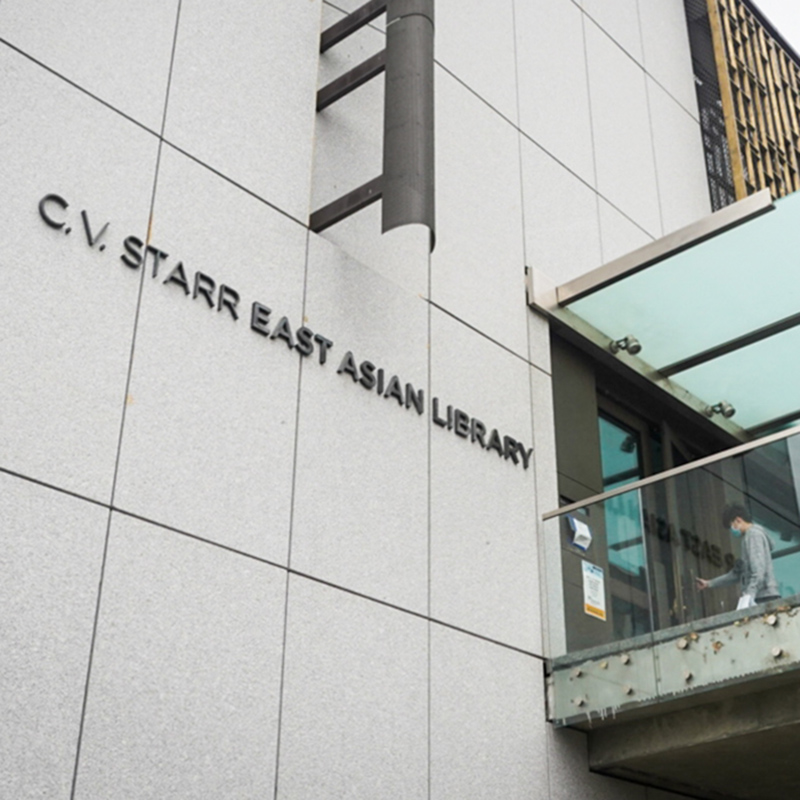
Art meets AI
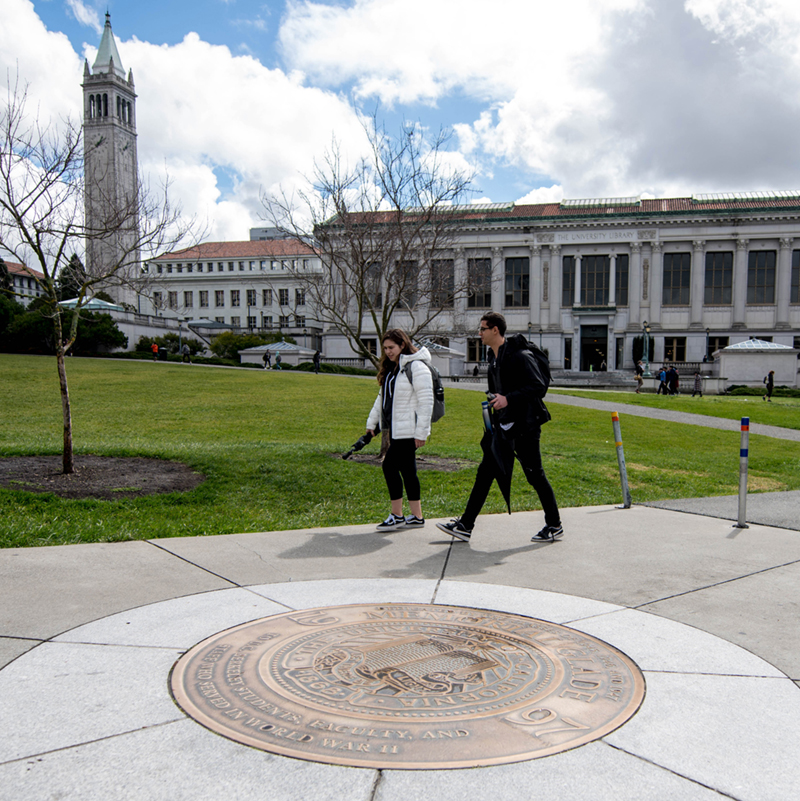
Triple threat
Data science doesn’t have to be intimidating. That’s the principle behind a slate of free workshops offered by the Library, in partnership with the College of Computing, Data Science, and Society. The peer-to-peer workshops were the first at Berkeley to be available to California community college students. Among the offerings was a session in Spanish on the programming language Python.
Students looking for research support could get by with a little help from their peers. They needed only to book a low-stress in-person session with a Library fellow. The Undergraduate Library Fellowship is a cohort program that promotes peer-to-peer learning with the shared goal of improving Library services and spaces.
The C. V. Starr East Asian Library launched a project harnessing the power of machine learning to detect and describe the art within digitized rare Chinese books. Illustrations are essential to these volumes, helping convey meaning and enhance understanding, and their descriptions offer significant benefit to teaching and learning. The project aims to make a resource-intensive process more efficient.
The Mellon Foundation awarded three of its prestigious grants to support projects at the Library and beyond. The projects range from amplifying the voices of women poets, to unlocking the research potential of films and TV shows, to investigating the possibilities of broadening access to digital books.
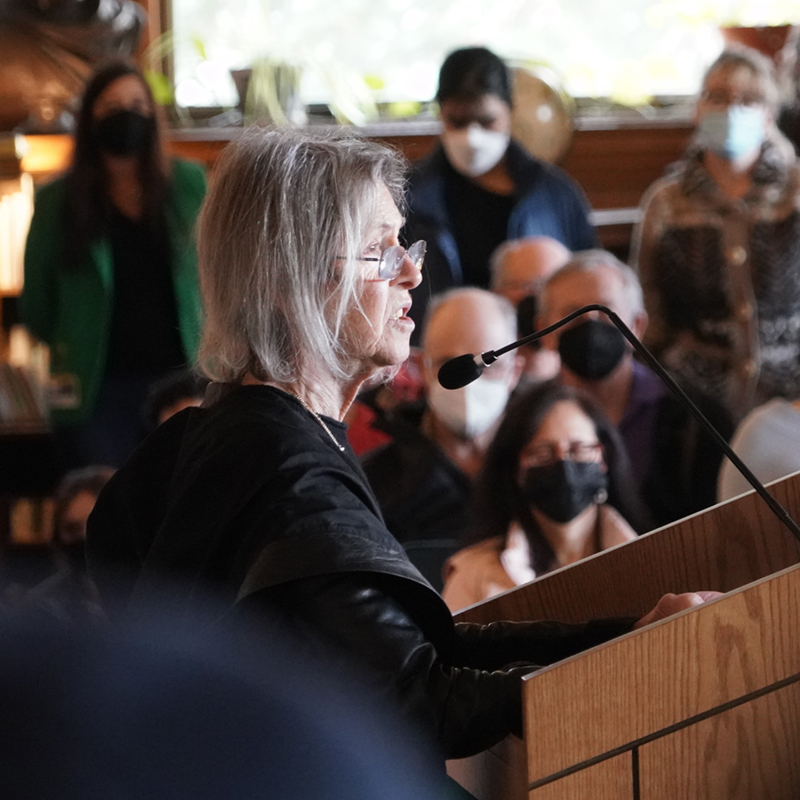
Reading the room
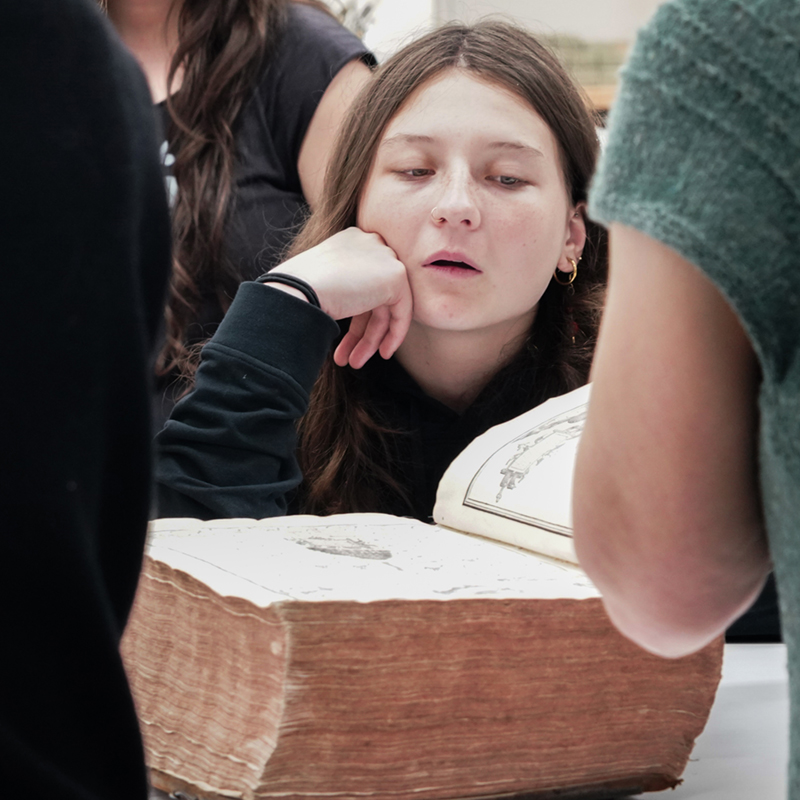
Spellbinding
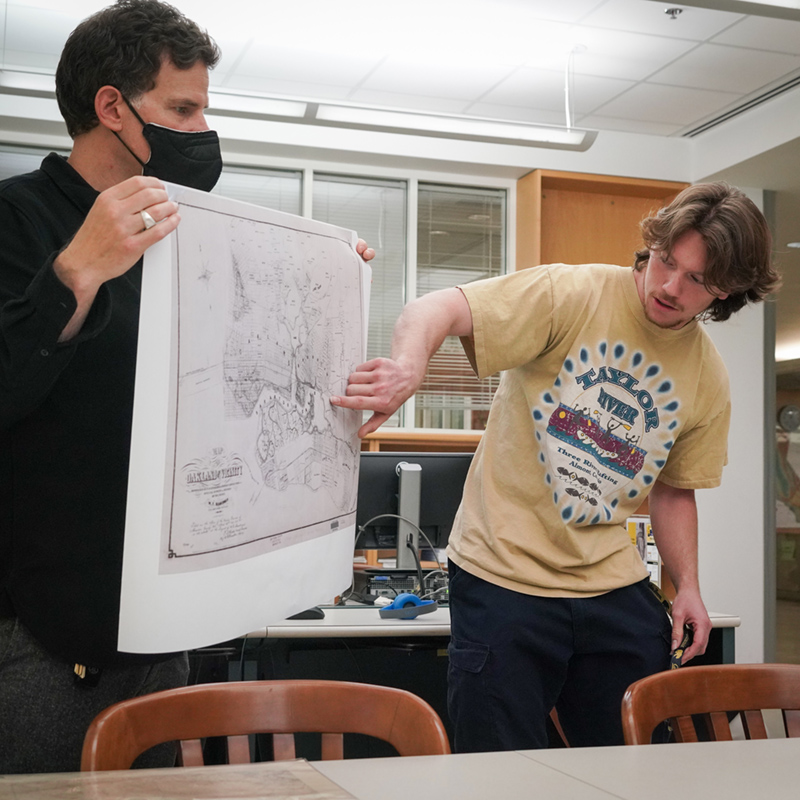
Budding researchers
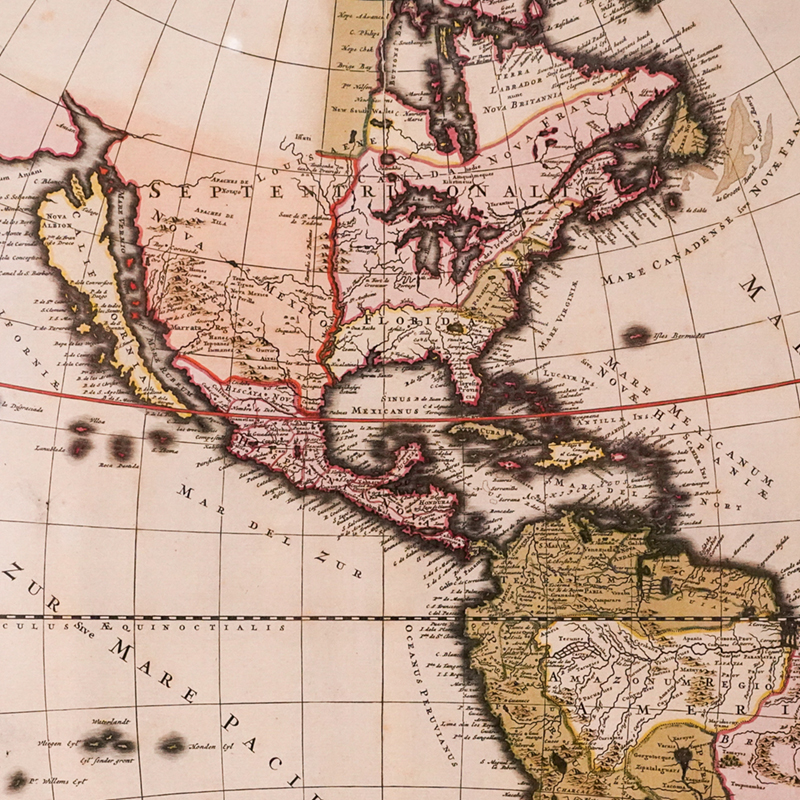
‘X’ marks the spot
The Lunch Poems series continued to captivate literary aficionados, who gathered monthly in Morrison Library for a dollop of midday delight. Since 1995, the program has hosted an impressive collection of notable poets, from rising stars to venerated virtuosos. In February, Louise Glück, winner of the 2020 Nobel Prize in literature, gave one of her final readings, in front of a standing room-only audience.
The Library’s Conservation Treatment Lab is a place where craft, chemistry, and a little magic are used to extend the lives of books and other artifacts. In May, students from a chemistry class in the Arts and Humanities Academy at Berkeley High School sampled the many charms of the lab, and learned about the science of preservation.
With the help of the Earth Sciences & Map Library, students in a geography course dug into the Bay Area’s past by exploring a piece of land in Oakland that is now home to a justice-focused urban farm. Students examined the tract’s history while sharpening their research skills, and shared what they learned at a pop-up exhibit hosted by the library.
In The Bancroft Library Gallery, visitors discovered Visualizing Place: Maps from The Bancroft Library, an exhibit that charted the evolution of cartography from the earliest printed atlas to contemporary maps that evoke cultural, social, and even fictional narratives. Particular emphasis was given to the Bay Area and Mexico City.
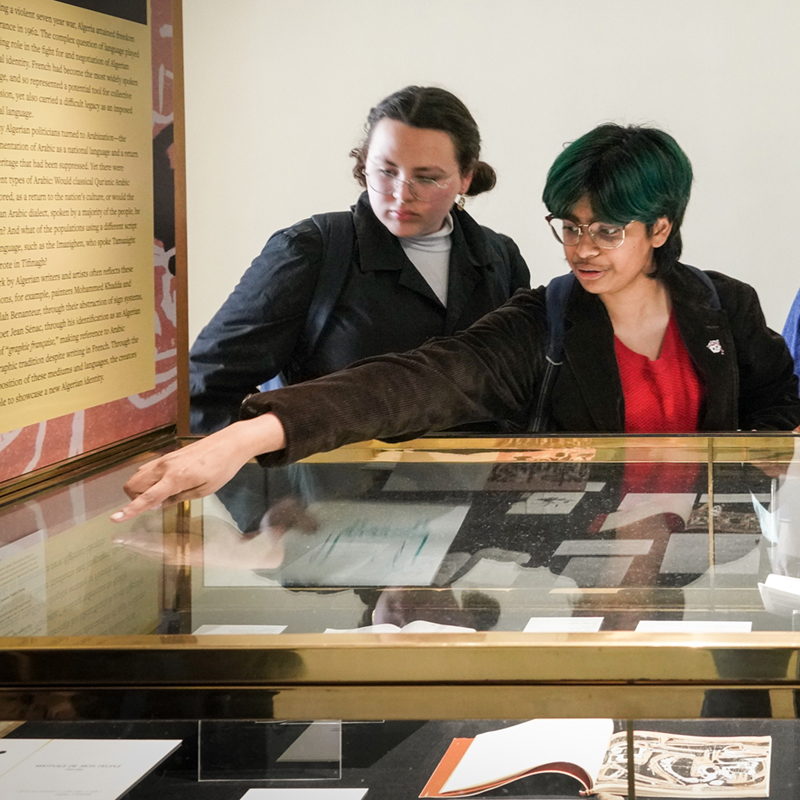
Language, reimagined
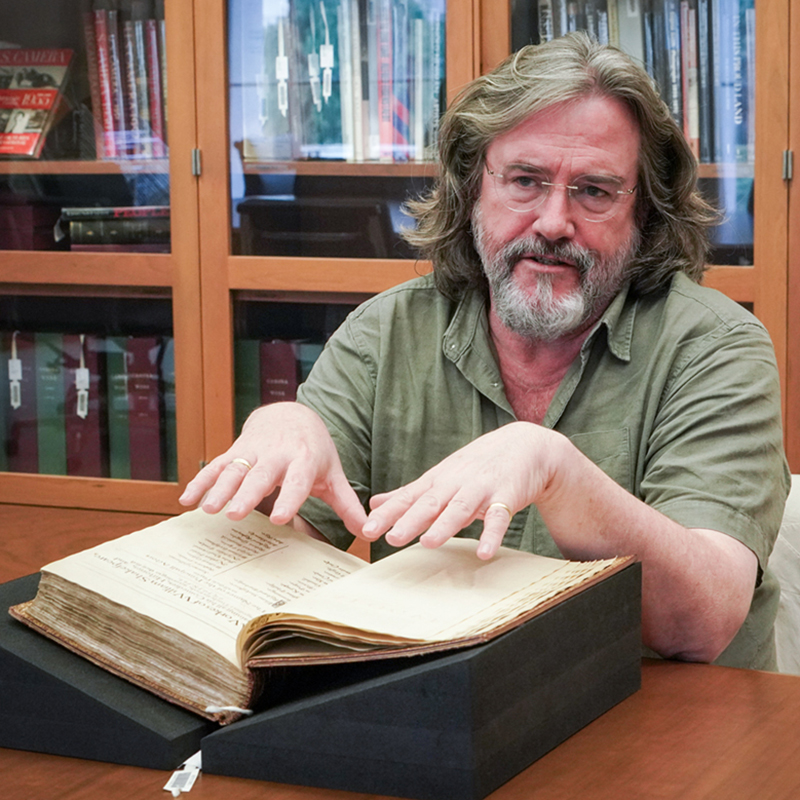
The play’s the thing
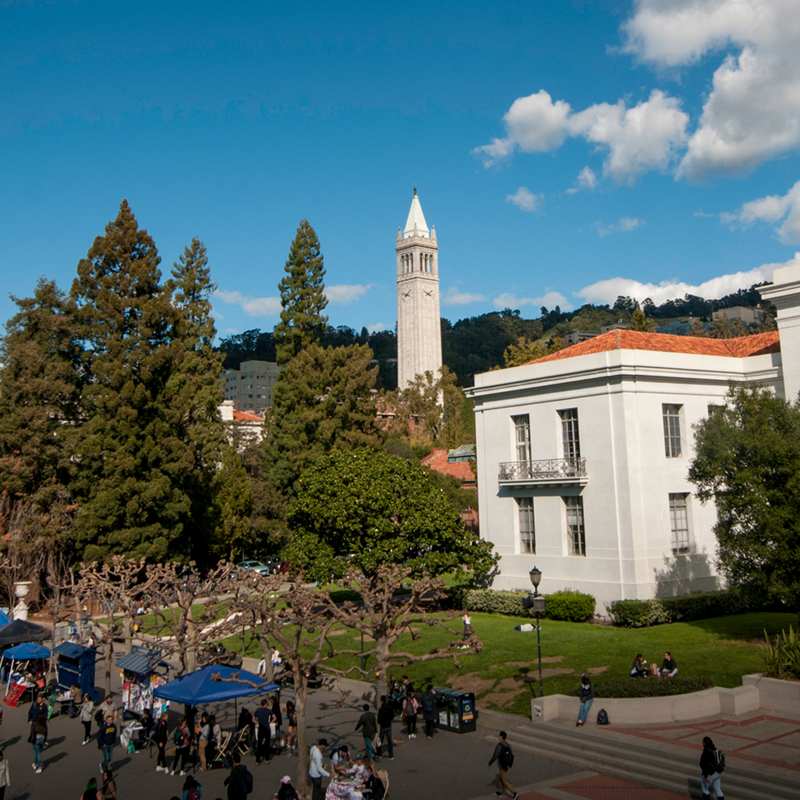
Freedom to read
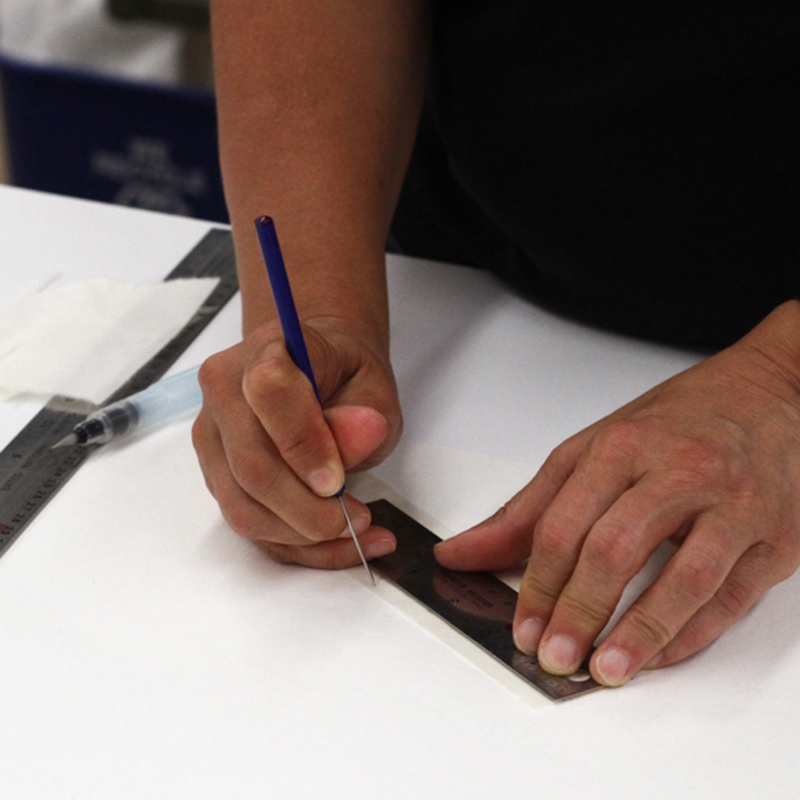
Revealing expression
Art history students put their learning on display in March with Letters | الحروف How Artists Reimagined Language in the Age of Decolonization. The student-curated exhibit, which drew its principal works from Library collections, invited visitors to experience calligraphic modernism. The art phenomenon saw artists turn to the forms of the Arabic alphabet as elements in modernist art.
One of The Bancroft Library’s many must-see treasures is an original copy of Shakespeare’s First Folio, the earliest printed collection of the Bard’s plays, from 1623. Gregory Doran, the artistic director emeritus of the Royal Shakespeare Company, visited the volume as part of a research project. The library also digitized the folio, so people everywhere can experience its dramatic pleasures.
It has never been easier for UC researchers to make their findings freely available to all. This year, the University of California reached the milestone of having secured open access agreements with 15 publishers. Through these deals, more than half of UC research has become eligible to be published for anyone in the world to read for free.
This preservation project was … revealing. A professor wanted to see the entirety of an image — the only known color reproduction of a painting by a censored Chinese artist. But the journal with the image was bound with other editions, leaving the image obscured. The preservation team found a copy that could be unbound, and the image was scanned — a win for the professor, and freedom of expression.
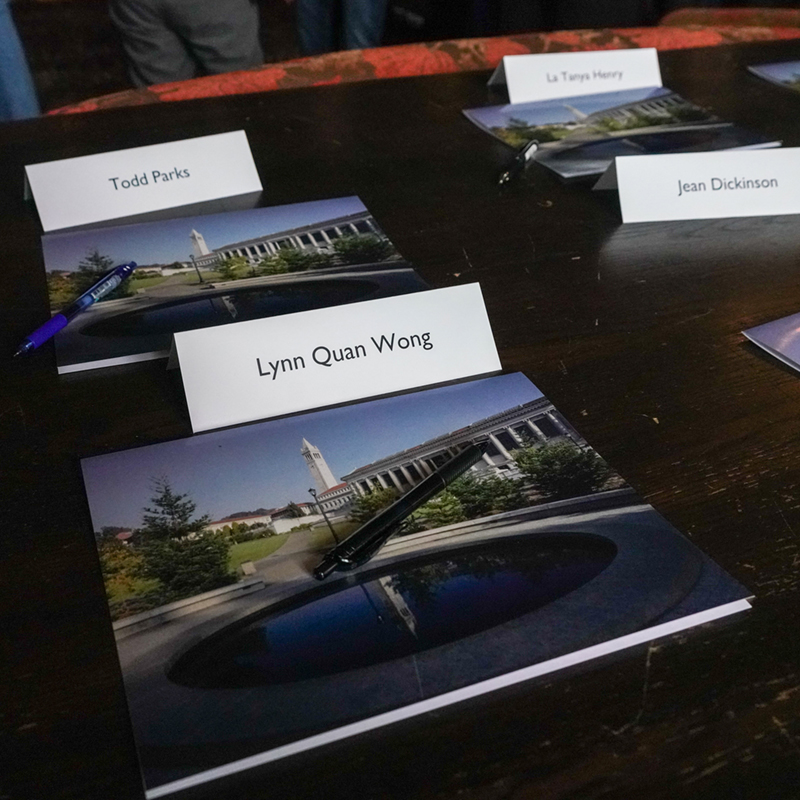
Three cheers
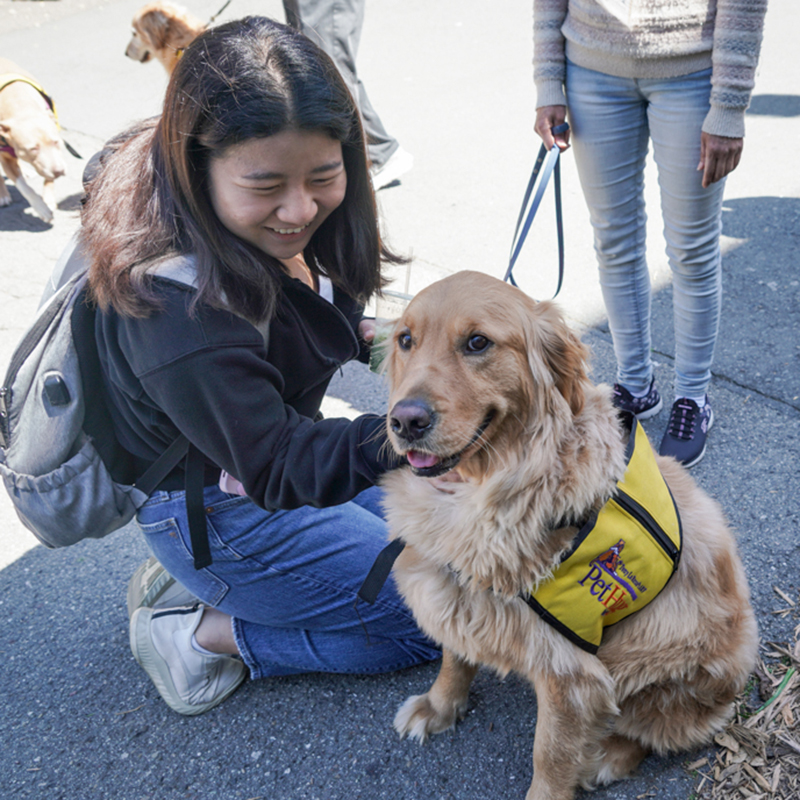
De-stressing, fur real
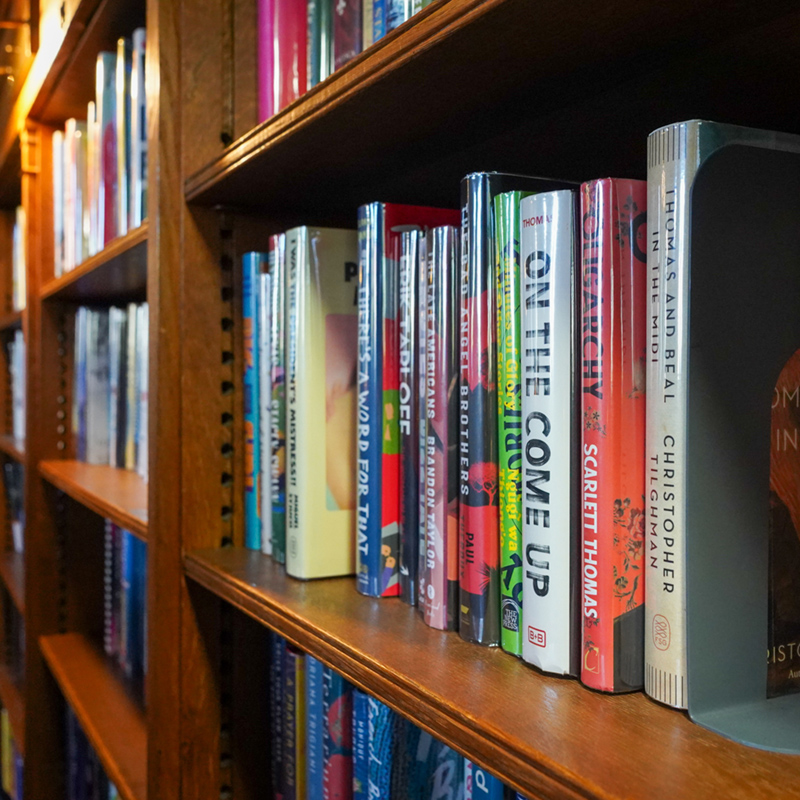
Library recommends

Calls of the wild
In June, the Library marked the retirement of 12 colleagues. All told, the team members had provided nearly 300 years of service to the Library. Among them were longtime colleagues Minh Yen Giang, Lynn Quan Wong, and Melissa Wong, who worked side by side for 40 years as deposit services assistants at the Northern Regional Library Facility.
Sometimes, the life of a student can be, well, ruff. That’s where Pet Hugs comes in. The program, a partnership between University Health Services and the Animal Rescue Foundation, brings friendly floofers outside the entrance of Moffitt Library for the occasional canine cuddle session. Students can take a break from their studies to pet a pupper, while de-stressing in the process.
Yes, the Library has books. But did you know the Library also has book recommendations? Most months, the bibliophiles in the Arts & Humanities Division posted a themed list of recommended reads. February’s focus, for example, was on books that celebrate Black history. From nonfiction for Earth Day to novels for the new year, the Library had readers covered.
Data comes in all forms, from hoards of numbers to … 30 hours of monkey calls? This primate playlist was collected in the 1970s by a wife-and-husband research duo exploring the language-like nature of vervet monkeys’ vocalizations. The resource was requested by a Berkeley faculty member in cognitive science, and is part of the diverse range of data available through the Library Data Services Program.
